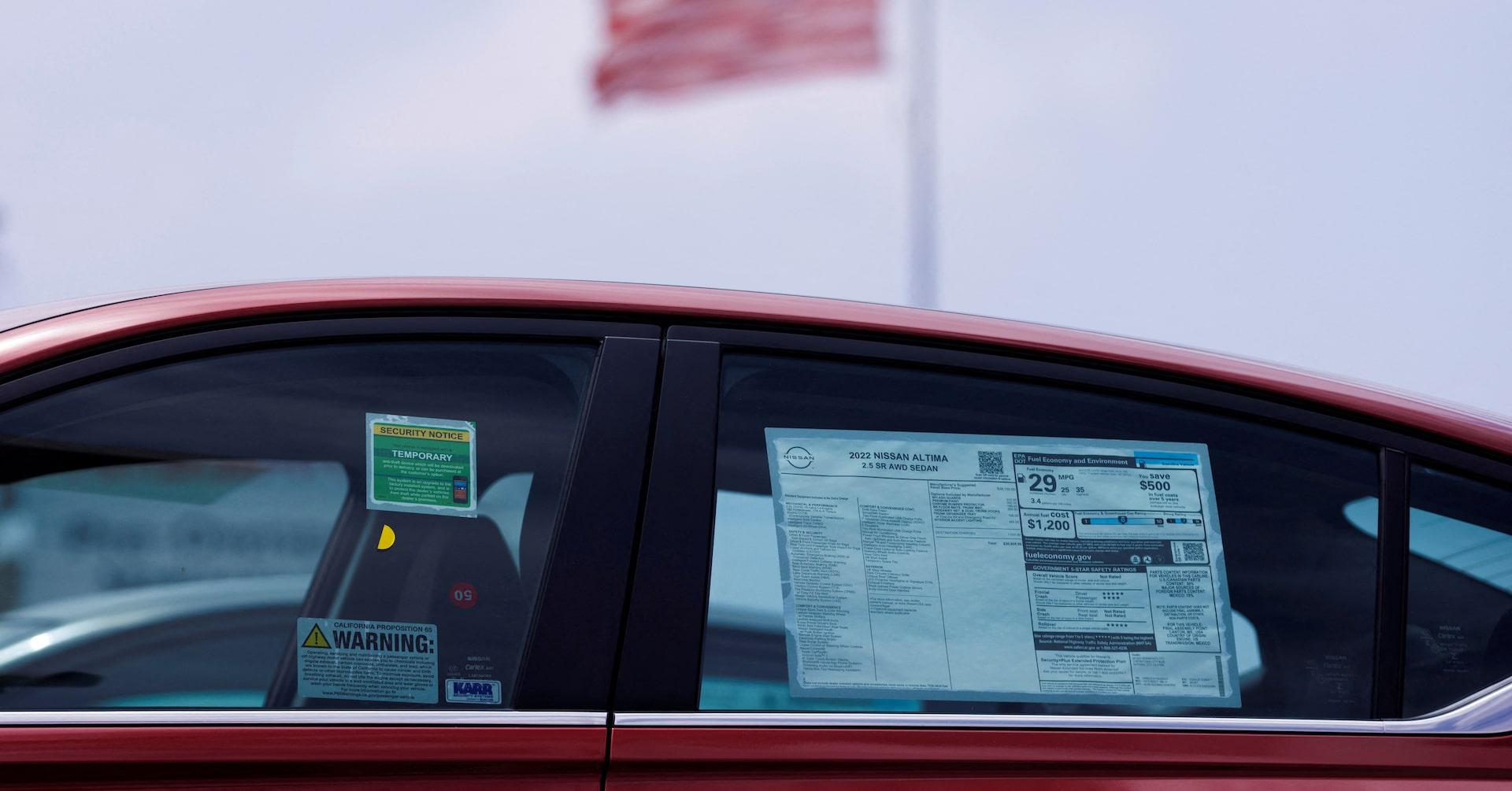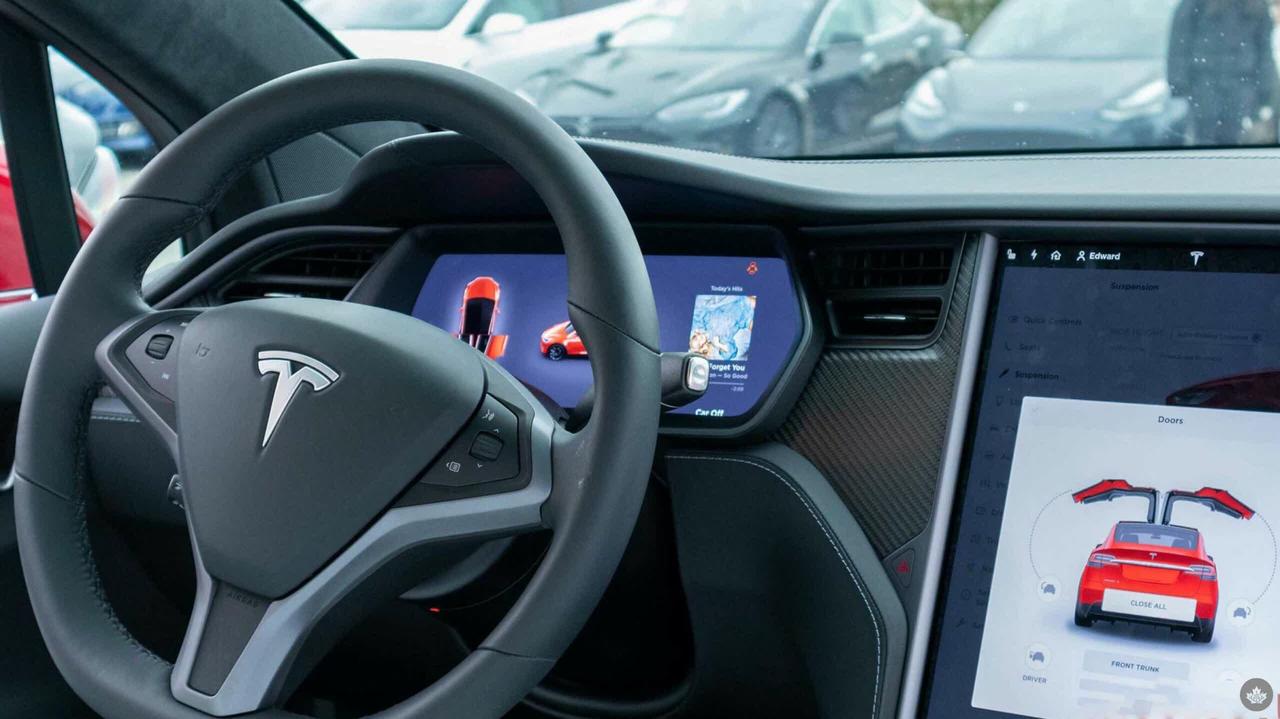The California Air Resources Board was the original source of the Advanced Clean Cars II regulations.
According to California regulations, new gas vehicle sales will be phased out starting with the 2026 model year and subsequently reduced until 2035, when there will be an outright ban on the sales.
Following California’s 2022 adoption of the rules, eight other states have done the same, and several more are examining the proposal.
New York, New Jersey, Rhode Island, Massachusetts, Delaware, Maryland, and Washington are the other states that have so far put the plan into action with the aim of selling no new gas-powered cars by 2035.
BIDEN ADMIN TO FINALIZE MAJOR GAS CAR CRACKDOWN OVER WARNINGS FROM AUTOMAKERS, ENERGY INDUSTRYThe regulations in these states do not prevent citizens from acquiring or utilizing gas-powered automobiles, nor do they compel them to purchase electric vehicles (EVs).
As long as the used cars in these states comply with certain emissions regulations, dealers are free to sell used gas-powered cars, and consumers in those states are free to buy gas-powered cars elsewhere.
All are not in favor of this endeavor, though.
A campaign to prevent New Jersey from implementing the Advanced Clean Cars II rule was spearheaded last year by the New Jersey Business and Industry Association (NJBIA).
The NJBIA’s chief deputy government affairs officer, Ray Cantor, stated in a statement to Fox News Digital that the plan disregards the lack of existing infrastructure and the cost to consumers.
Cantor said, “The prohibition on new gas-powered cars in such a short amount of time does not take costs or feasibility into account.”.
“The deficiency of regional and transportation infrastructure is not considered.
It doesn’t account for grid capacity.
It disregards what the customer wants.
Particularly low- and moderate-income families are not taken into consideration among the people of New Jersey.
Moreover, it ignores the fact that there is no real environmental advantage. “.”.
Before the mandate begins to impact consumers, Cantor urged New Jersey to “apply the brakes” to what he considered an obvious “bureaucratic overreach.”.
Working to lower carbon emissions is perfectly acceptable, according to Cantor.
Furthermore, the market would have probably witnessed a rise in the number of EV users along with an organic timeline for the development of suitable capacities.
However, the immediate, focused regulations will raise the cost of gas-powered vehicles, both new and old. “.
RIDDLE OF OPPOSITION: “DEFY COMMON SENSE” VIRGINIA DEMOCRATS SUPPORT THE ACT, CALLS THE RULES A “MAJOR STEP” IN THE FIGHT AGAINST CLIMATE CHANGE IN THE TRANSPORTATION SECTOR.
“Undertakings by states to jointly send a strong message to the market will have a positive economic impact by increasing economies of scale, bringing down the cost of ZEVs (zero-emission vehicles), and guaranteeing that Rhode Island dealers and consumers have complete access to electric vehicles,” stated Gray.
The regulations are a result of the Biden administration’s efforts to advance its climate agenda by encouraging the transportation industry to switch from gas-powered to electric vehicles.
The Environmental Protection Agency (EPA) revealed its own plan last year to raise vehicle pollution standards, which will affect cars built in the 2027–2032 model years.
67 percent of new sedan, crossover, SUV, and light truck purchases could be electric by 2032 if the EPA’s regulations are finalized, according to White House projections.
Additionally, by that time, purchases of buses and garbage trucks could account for up to 50% of electric vehicles, while purchases of short-haul and long-haul freight tractors could account for 35% and 25%, respectively.
Nonetheless, there have been a number of industry setbacks to the drive toward EVs.
Hertz CEO Stephen Scherr resigned earlier this month after the company’s large EV wager failed because of its inability to keep up with the decreasing demand for EV rentals and the higher cost of repairs.
Ford’s chief financial officer, John Lawler, stated during the company’s earnings call last month that both “the quarter and year were impacted by challenging market dynamics and investments in next-generation vehicles.” GET FOX BUSINESS ON THE GO BY CLICKING HERE Ford’s EV division, Ford Model e, posted a net loss of $4.7 billion last year, with $1.6 billion of that in the last quarter. “.
As part of a push to reduce emissions that contribute to climate change, nine states intend to outlaw the sale of new gasoline-powered automobiles by 2035.
The California Air Resources Board was the original agency responsible for developing the Advanced Clean Cars II regulations. Beginning with the 2026 model year, California’s regulations aim to gradually phase out the sale of new gas vehicles. The ban on sales will be fully implemented in 2035.
Following California’s 2022 adoption of the rules, eight other states have done the same, and several more are examining the proposal.
Thus far, the following states have put their plans into action in an effort to reach the target of selling no new gas-powered cars by 2035: Oregon, Washington, New York, New Jersey, Rhode Island, Massachusetts, Delaware, and Maryland.
BIDEN ADMIN IS SET TO FINALIZE MAJOR GAS CAR CRACKDOWN DUE TO WARNINGS FROM AUTOMAKERS AND THE ENERGY INDUSTRY.
The regulations do not prevent citizens of these states from purchasing or operating gas-powered automobiles, nor do they compel them to do so (EVs). As long as they adhere to specific emissions regulations, dealers are still allowed to sell used gas-powered cars, and residents of these states are able to buy gas-powered cars in other states.
Still, not everyone is in favor of this endeavor.
Last year, the Advanced Clean Cars II rule was tried to be adopted in New Jersey by the state through a campaign spearheaded by the New Jersey Business and Industry Association (NJBIA).
In a statement, Ray Cantor, the NJBIA’s chief deputy government affairs officer, told Fox News Digital that the plan disregards the lack of existing infrastructure and the cost to consumers.
Cantor said, “Costs or viability are not taken into account in the expedited timeframe for the ban on new gas-powered cars.”. “It ignores the deficiency of regional and transportation infrastructure. Grid capacity is not considered. It disregards the preferences of the customer. It ignores the people of New Jersey, particularly the low- and moderate-income families. Furthermore, it ignores the fact that there is no true environmental benefit. “.”.
Cantor asked that before the mandate begins to impact consumers, New Jersey “apply the brakes” to what he considered to be an obvious “bureaucratic overreach.”.
Reducing carbon emissions is a good thing, according to Cantor. Additionally, there would have been a natural increase in EV users on the market, giving time for appropriate capacity to be built. However, the immediate, targeted mandates will drive up the cost of gas-powered vehicles, both new and old. “.
Virginians support the state’s electric mandate despite growing opposition by urging people to “defy common sense.”.
The regulations are a “major step” in the fight against climate change in the transportation sector, according to Terry Gray, director of the Rhode Island Department of Environmental Management, who supports the action.
According to Gray, “states coming together to send a clear signal to the market will result in greater economies of scale, driving down the prices of ZEVs (zero-emission vehicles), and ensuring that Rhode Island dealers and customers have full access to electric vehicles.” This has an economic impact.
As part of its climate agenda, the Biden administration has attempted to encourage the transportation sector to switch from gas-powered vehicles to electric vehicles (EVs).
The Environmental Protection Agency (EPA) revealed last year their own plan to raise vehicle pollution standards, which will affect cars built in 2027 through 2032.
The White House predicted that by 2032, a startling 67 percent of new sedan, crossover, SUV, and light truck purchases might be electric if the EPA’s regulations are approved. Furthermore, by that time, purchases of buses and garbage trucks could account for up to 50% of total purchases, along with short-haul freight tractors accounting for 35% and long-haul freight tractors for 25%.
Nonetheless, there have been a number of industry setbacks to the drive toward EVs.
Stephen Scherr, the CEO of Hertz, stepped down earlier this month after the company’s large EV wager failed because of its inability to keep up with the rising cost of repairs and declining demand for EV rentals.
PURCHASE FOX BUSINESS ON THE GO HERE.
During the company’s earnings call last month, Ford’s chief financial officer, John Lawler, stated that the “quarter and year were impacted by challenging market dynamics and investments in next-generation vehicles.” The EV division, Ford Model e, posted a net loss of $4.7 billion last year, with $1.6 billion of that in the last quarter. “.




